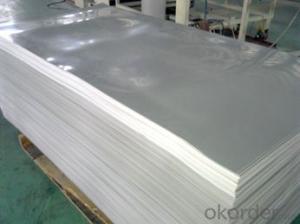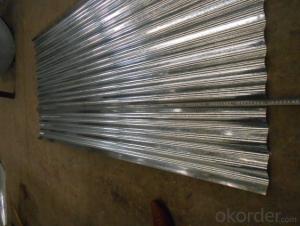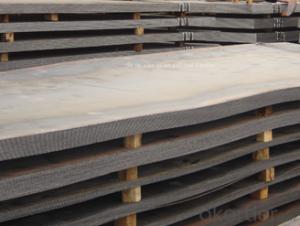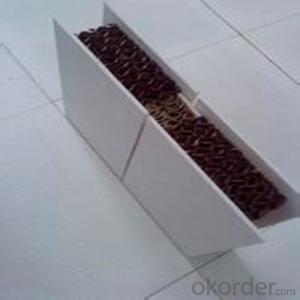Galvanized Steel Sheet for Roofing Purpose Q235 SS400 GRADE D
- Loading Port:
- Tianjin
- Payment Terms:
- TT OR LC
- Min Order Qty:
- 100 m.t.
- Supply Capability:
- 10000000 m.t./month
OKorder Service Pledge
OKorder Financial Service
You Might Also Like
1.Brief Introduction of Galvanized Steel Sheet for Roofing Purpose Q235 SS400:
Plain galvanized sheets are used for automotive body building, panels, electrical appliances like refrigerator, washing machine, and use for advertisement panels. Etc.
The thickness ranges from 0.5mm to 2mm in thickness and 900mm to 1250mm in width.
The coating also ranges from 120gsm to 240gsm
Galvanized plain sheets are manufactured using premium quality material which provides high tensile strength and makes them seepage resistant. GC sheets prove to be a cost effective solution for various construction purposes such as roofing, side-walls, partitions and panels.
2.Main features of Galvanized Steel Sheet for Roofing Purpose Q235 SS400:
.Corrugated Galvanized sheets are mainly used for roofing purpose.
.Corrugated galvanized sheets are generally termed as G.C. Sheet.
3. Galvanized Steel Sheet for Roofing Purpose Q235 SS400 Images:
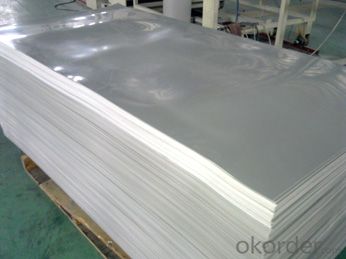
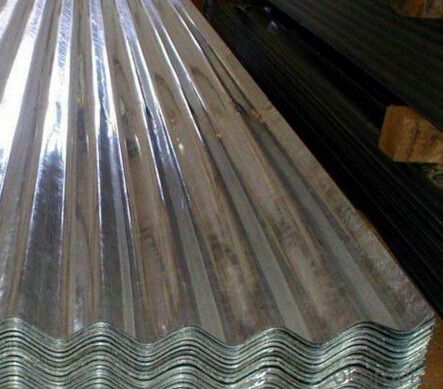
4. Galvanized Steel Sheet for Roofing Purpose Q235 SS400 Specification:
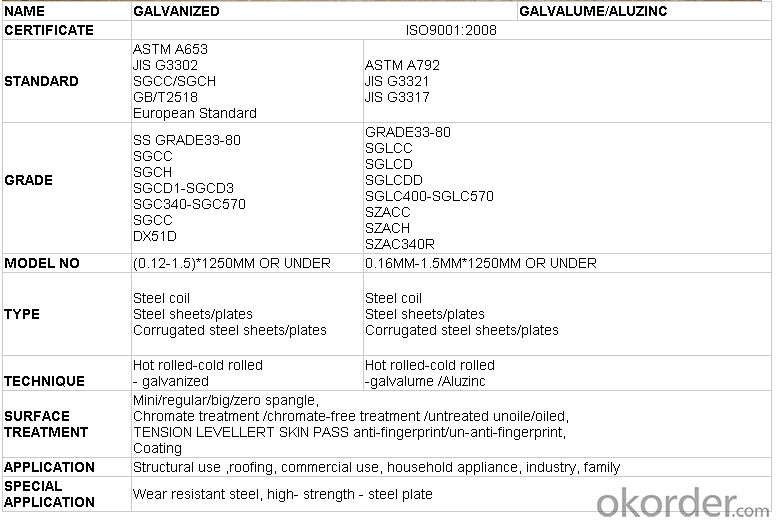
5.Our Factory:
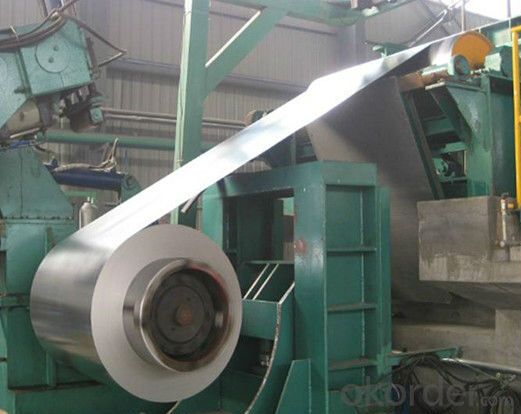
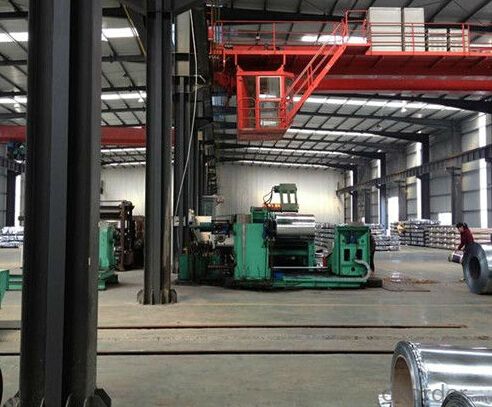
6.FAQ:
We have organized several common questions for our clients,may help you sincerely:
①How about your company?
A world class manufacturer & supplier of castings forging in carbon steel and alloy steel,is one of the large-scale professional investment casting production bases in China,consisting of both casting foundry forging and machining factory. Annually more than 8000 tons Precision casting and forging parts are exported to markets inEurope,America and Japan. OEM casting and forging service available according to customer’s requirements.
②How to guarantee the quality of the products?
We have established the international advanced quality management system,every link from raw material to final product we have strict quality test;We resolutely put an end to unqualified products flowing into the market. At the same time, we will provide necessary follow-up service assurance.
③How long can we receive the product after purchase?
In the purchase of product within three working days, We will arrange the factory delivery as soon as possible. The pecific time of receiving is related to the state and position of customers.Commonly 7 to 10 working days can be served.
- Q:Are steel sheets suitable for railway track construction?
- Yes, steel sheets are suitable for railway track construction. Steel is a highly durable and strong material, making it ideal for withstanding the heavy loads and constant traffic of trains. Steel sheets are often used as the base for railway tracks, providing a solid foundation for the rails and ensuring stability and reliability. Additionally, steel offers excellent resistance to wear, corrosion, and deformation, which are crucial factors in maintaining the long-term performance of railway tracks. Its high strength-to-weight ratio also allows for lighter track structures and reduced maintenance requirements. Overall, steel sheets are a popular choice in railway track construction due to their strength, durability, and cost-effectiveness.
- Q:Can steel sheets be used for electrical motors?
- Yes, steel sheets can be used for electrical motors. Steel is commonly used in the construction of motor cores as it provides high magnetic permeability, low hysteresis, and low eddy current losses, which are essential for efficient operation of electrical motors.
- Q:What are the different thickness options for steel sheets?
- The thickness options for steel sheets can vary depending on the specific requirements, but commonly available options range from thin gauges like 30 gauge (0.012 inches) to thicker ones such as 10 gauge (0.134 inches).
- Q:Can steel sheets be used in earthquake-resistant construction?
- Yes, steel sheets can be used in earthquake-resistant construction. Steel is a strong and durable material that has been widely used in seismic design and construction. Steel sheets can be used as structural elements in the form of beams, columns, and bracings, providing stability and strength to the building. Steel has several properties that make it suitable for earthquake-resistant construction. Firstly, steel is flexible and ductile, which means it can deform without breaking under the stress of an earthquake. This flexibility allows steel structures to absorb and dissipate seismic energy, reducing the impact on the building and minimizing damage. Additionally, steel has a high strength-to-weight ratio, which means it can withstand large forces while being relatively lightweight. This is beneficial in earthquake-resistant construction as it helps to reduce the overall weight of the structure, which in turn reduces the seismic forces acting on the building. Moreover, steel is a homogeneous material, which means it has consistent properties and behavior throughout its structure. This allows for accurate and predictable analysis and design of steel structures, ensuring that they can withstand seismic forces. Furthermore, steel structures can be designed and constructed with specific earthquake-resistant features, such as base isolation or energy dissipation devices, to further enhance their seismic performance. These features help to absorb and dissipate seismic energy, reducing the impact on the structure and improving its resistance to earthquakes. In conclusion, steel sheets can indeed be used in earthquake-resistant construction. Their flexibility, strength, and ability to dissipate seismic energy make them a suitable material for withstanding earthquake forces and ensuring the safety and stability of buildings in seismic areas.
- Q:What is the average price of steel sheets?
- The average price of steel sheets can vary depending on factors such as size, thickness, and market conditions. It is recommended to check with steel suppliers or refer to industry reports for the most up-to-date and accurate pricing information.
- Q:Can steel sheets be used for flooring?
- Yes, steel sheets can be used for flooring, especially in industrial or commercial settings. Steel flooring offers durability, strength, and resistance to wear and tear. It is commonly used in warehouses, factories, and other high-traffic areas where heavy loads and frequent foot traffic are expected.
- Q:What are the common thicknesses for galvanized steel sheets?
- The common thicknesses for galvanized steel sheets range from 0.4mm to 3mm, with the most commonly used thicknesses being 0.8mm, 1mm, and 1.2mm.
- Q:Are the steel sheets suitable for outdoor signage?
- Yes, steel sheets are generally suitable for outdoor signage due to their durability, weather resistance, and ability to withstand harsh environmental conditions.
- Q:Can steel sheets be used in architectural or decorative applications?
- Yes, steel sheets can definitely be used in architectural or decorative applications. Steel is a versatile and durable material that offers numerous benefits for both structural and aesthetic purposes. In architectural applications, steel sheets can be used for roofing, wall cladding, and structural framing, providing strength, stability, and resistance to harsh weather conditions. Additionally, steel sheets can be fabricated into various shapes, sizes, and finishes, allowing architects and designers to create unique and visually appealing structures. In decorative applications, steel sheets can be used for interior and exterior design elements such as decorative panels, screens, railings, and sculptures. The ability to customize steel sheets with various patterns, textures, and colors makes them a popular choice for enhancing the visual appeal of buildings and spaces. Overall, steel sheets are a versatile material that can be utilized in a wide range of architectural and decorative applications, offering both functionality and aesthetics.
- Q:Can steel sheets be used in the construction of bridges?
- Yes, steel sheets can be used in the construction of bridges. Steel sheets are commonly used as structural components for various types of bridges due to their high strength, durability, and resistance to corrosion. They provide excellent load-bearing capacity and can be easily fabricated and assembled, making them a popular choice in modern bridge construction.
1. Manufacturer Overview |
|
|---|---|
| Location | |
| Year Established | |
| Annual Output Value | |
| Main Markets | |
| Company Certifications | |
2. Manufacturer Certificates |
|
|---|---|
| a) Certification Name | |
| Range | |
| Reference | |
| Validity Period | |
3. Manufacturer Capability |
|
|---|---|
| a)Trade Capacity | |
| Nearest Port | |
| Export Percentage | |
| No.of Employees in Trade Department | |
| Language Spoken: | |
| b)Factory Information | |
| Factory Size: | |
| No. of Production Lines | |
| Contract Manufacturing | |
| Product Price Range | |
Send your message to us
Galvanized Steel Sheet for Roofing Purpose Q235 SS400 GRADE D
- Loading Port:
- Tianjin
- Payment Terms:
- TT OR LC
- Min Order Qty:
- 100 m.t.
- Supply Capability:
- 10000000 m.t./month
OKorder Service Pledge
OKorder Financial Service
Similar products
New products
Hot products
Related keywords
